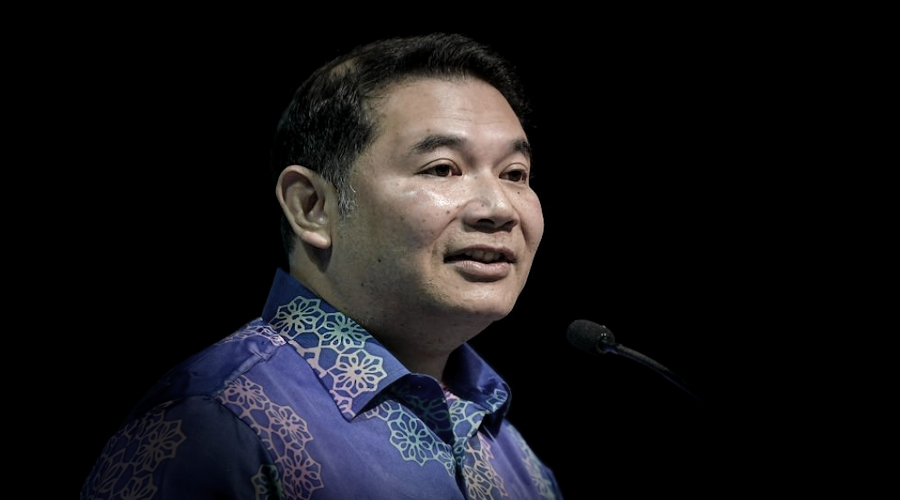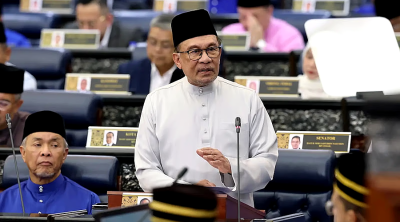
The party elections of PKR have revealed shocking results so far, with several ministers, deputy ministers and state assemblymen losing their positions—particularly those aligned with Datuk Seri Mohd Rafizi Ramli, PKR deputy president and the Minister of Economy.
A bizarre phenomenon in this election is that many candidates who are division heads lost in the election while other members of the respective teams won.
This “divided result” is described as “the body has passed, but not the head.”
Logically, if party members reject the incumbent division chief, the entire faction should also be rejected. However, this situation appears unique to PKR—are the members unhappy with the incumbent leaders?
For example, Rodziah Ismail, Member of Parliament for Ampang and former Shah Alam division chief, lost to her deputy, Mohd Najwan Halimi, the state assemblyman for Kota Anggerik.
Rodziah received only 899 votes, while her running mate, Shahrul Nizam, won with 1,061 votes. The division had 3,307 eligible voters.
Rodziah questioned the election results, calling them “very strange” as she was the only one in her team to lose, and by the lowest vote count.
She claimed there were glitches in the mobile app used for online voting that might have affected her performance.
PKR vice president and Minister of Natural Resources and Environmental Sustainability Nik Nazmi Nik Ahmad also failed to defend his position in the Setiawangsa division, losing by 68 votes to actor and well-known director Afdlin Shauki.
Nik Nazmi said he would file a complaint through proper party channels, as part of the commitment to ensure integrity and fairness in party elections.
Perhaps the most surprising upset was in Johor Bahru, where Deputy Minister of Energy transition and public utilities Akmal Nasrullah Mohd Nasir, who is also Johor Bahru MP, prematurely declared victory on Facebook with 949 votes, claiming his team had gathered vote records that were “legally valid” and showed he won with a significant majority.
But when the results were announced, he only had 587 votes, losing by 122 votes to Mohammad Taufik, the Johor PKR Youth chief who secured 709 votes.
A number of high-profile PKR leaders also lost, including: Deputy Youth and Sports Minister Adam Adli, Deputy Minister of National Unity Saravanan Saraswathy, Batu MP P. Prabakaran, Wangsa Maju MP Zahir Hassan, Petaling Jaya MP Lee Chean Chung, Balik Pulau MP Muhammad Bakhtiar Wan Chik, Rawang assemblyman Chua Wei Kiat, Penang exco Fahmi Zainol, Pahang PKR chief Rizal Jamin, Teruntum assemblyman Sim Chon Siang, Semambu assemblyman Chan Chun Kuang, Perlis PKR deputy chairman and Indera Kayangan assemblyman Gan Ay Ling, former Melaka exco Datuk Ginnie Lim Siew Lin and Sabah Tourism, Culture, and Environment Minister Datuk Christina Liew.
If Rafizi’s faction continues to lose ground, his deputy presidency might be challenged.
Due to the widespread suspicions of electoral irregularities, more than one-third of the Central Leadership Council (MPP) members have requested an emergency meeting this Wednesday to discuss the matter.
While some defeated candidates suspect electoral fraud, Pasir Gudang MP Hassan Abdul Karim offered a different perspective.
He believes that some senior party leaders became arrogant after gaining power, leading to their downfall at the division level.
He noted that many of those who ran under the “Ayuh Malaysia” (Let’s Go Malaysia) platform in 2022—trying to challenge PKR President Datuk Seri Anwar Ibrahim—have now been defeated by lesser-known grassroots candidates.
Hassan’s remarks indirectly criticized Rafizi’s faction, as Rafizi led the “Ayuh Malaysia” campaign during the 2022 party elections.
Back then, Rafizi defeated Saifuddin Nasution to be the deputy president, and three of the four vice president posts were won by his allies—Chang Lih Kang, Nik Nazmi, and Negeri Sembilan Menteri Besar Datuk Seri Aminuddin Harun—while only Selangor Menteri Besar Datuk Seri Amirudin Shari aligned with Saifuddin.
Of the 20 elected central committee positions, Rafizi’s faction won 13.
Rafizi was known for being blunt. He once stated that the new leadership should not be apple polisher in defending everything done by Anwar.
To those who are politically sensitive, this unexpected result of party election is unusual.
According to the party constitution, Anwar can only serve one more term as PKR president. If he wishes to continue as prime minister after the next general election, he would need the support of the next party president, making the succession plan crucial to PKR’s power structure.
If Rafizi’s faction continues to lose ground, his deputy presidency might be challenged.
The PKR party elections have long been plagued with issues.
Since adopting e-voting in 2018, technical glitches have persisted. The 2014 elections were even more chaotic, with reports of fights. The use of a “proportional representation system” to elect division-level central representatives this year has also drawn complaints.
Though PKR now controls substantial political resources, its administration and organization remain underdeveloped, raising concerns that this could trigger internal power struggles—jeopardizing Pakatan Harapan’s chances of retaining power in the next general election.
ADVERTISEMENT
ADVERTISEMENT








































